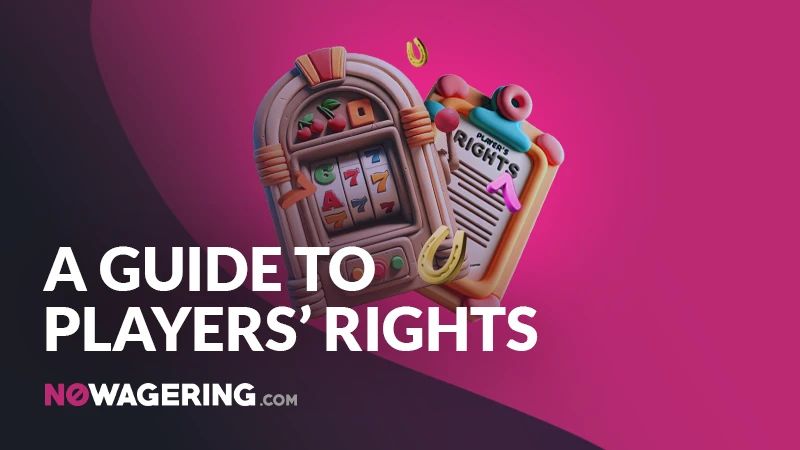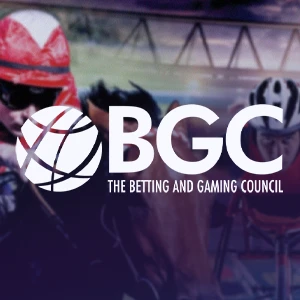A guide to players’ rights

Over the past 10 to 20 years, huge numbers of British gamblers have made the move online – leaving behind traditional brick-and-mortar casinos and betting shops. This behavioural shift prompted fears of player exploitation in an unregulated cyberspace. As a result, several organisations, most notably the UK Gambling Commission (UKGC), began working to ensure that online players are protected by clearly defined rights.
Whether you need guidance on a specific matter or just want to brush up and stay informed, this guide explores your rights as a British gambler. We also discuss legislative areas with room for improvement.
The authorities
There are several organisations to which casino operators answer. Chief among them is the UKGC, whose responsibility it is to monitor the adherence to, and punish the violation of. British gambling laws. The UKGC also assesses casinos and grants licences.
In order to be granted a licence and permitted to trade, operators must comply with the Licence Conditions and Codes of Practice (LCCP), which is set out by the UKGC.
Additionally, the Competition and Markets Authority (CMA) dictates that a number of clear principles must be followed in the provision of ‘remote gambling’ services.
Other organisations, including charities, campaign for further protective measures. And whilst the authorities, and the regulations they have set out, may not be perfect, the bottom line is that UK players are in safe hands.
If casinos don't comply, they are held to account and will be landed with a hefty fine.
RNGs & RTPs
The UKGC’s LCCP requirements stipulate that the random number generators (RNGs), which underpin random results in online games, must be without bias to ensure that the outcome of each game cannot be manipulated. Games are put through their paces by third-party testers such as eCOGRA and results are closely monitored.
Before going to market, online game developers must also simulate the predicted return from a slot or other casino game. This figure, known as the return to player (RTP) shows what percentage of funds going into a game will actually come out the other end as winnings. It’s the result of millions of plays and most games in the UK fall between 94% and 98%, ie: £0.94-£0.98 paid out against £1.00 wagered.
Terms, conditions and transparency
UKGC compliance regulations state that “consumers must be able to understand all of the terms that govern their play”.
Meeting this requirement, for casinos, means ensuring that T&Cs are legible and understandable to players within a range of literacy levels, including those whose first language may not be English.
T&Cs must be comprehensive and unambiguous, covering all relevant bases so you don’t need a PhD to get your head around them!
Despite this, many casinos still feature dense blocks of fine print, and combing through these for relevant information can be a laborious task. It seems that the Commission and operators could do more here, perhaps working towards a universal standard format for T&Cs.
Financial security
Players are entitled to know that their funds are safe. Playing at an online casino involves making financial transactions, and it is crucial that these are secure.
To ensure the protection player funds, the UKGC requires specific measures to be taken. These include providing reliable payment options, encrypting transaction information, and ensuring that funds in players’ accounts are responsibly held.
Regarding how funds are stored, regulations are surprisingly thin. Casinos must keep player funds in separate accounts to their main account, and they must disclose what happens in the case of insolvency – beyond this, it’s up to them how they look after your money.
Some casinos protect funds with insurance while others go further with complete segregation, permitting only third-party auditors to control them. However, some operators won’t go beyond the minimum requirement of maintaining separate accounts and will record customer funds as financial assets to pay creditors should the company be dissolved.
Raising the minimum requirements for the holding of players’ funds to guarantee protection in the case of insolvency seems like a logical step forward for the UKGC.
Data protection
When registering with a casino, you are entrusting the company with a number of identifying personal details relating to age, location, and finances.
2018’s GDPR regulations (now called 'UKGDPR' post-Brexit, but essentially the same), applies across Europe, replaced the 1998 Data Protection Act, details how an individual's personal information must be treated.
With such sensitive information on the line, casinos are required to encrypt and responsibly store your information, protecting it from data breaches and misuse. Organisations in a number of industries who have fallen foul of GDPR regulations have been fined astronomical amounts.
Access to help
Responsible gambling resources include tools and organisations which exist to protect individuals from harmful gambling, and to assist them in recovery should they need it.
Tools to this effect include time and deposit limits, self-exclusion options, and reality checks which encourage players to keep an eye on the duration of a gambling session. It is your right to have access to these.
Problem players have access to help from a number of different organisations, such as GamCare’s National Gambling Helpline, GambleAware, Gamblers Anonymous and others.
Intervention & privacy
Whilst the guidelines casinos must follow to monitor gambling behaviour are still very much a grey area, this is likely to change in the near future with the impending UK gambling reform.
Players can expect to see increased monitoring of their losses, as well as potential interventions and background checks in the case that losses exceed certain limits within a period of time.
Whilst these measures are obviously well-intended, they may also prove to be a violation of players’ privacy.
Furthermore, these checks don’t account for the fact that all players are different. By applying this reductive one-size-fits all approach to monitoring players’ affordability, regulators run the risk of isolating responsible gamblers.
Communications
Casinos are also required to provide players with the ability to opt out of communications, generally by replying to a text, contacting an automated phone service, or locating the relevant section in their online account.
As many will have experienced, unsubscribing from an unwanted communication list is not always as straightforward as it seems. Frequently, the option to do this is buried in a lengthy FAQ page, or it may require the player to unsubscribe several times to stop receiving various types of marketing, or the unsubscribing process may simply just not work.
It seems that more could be done by casinos, and all companies for that matter, to simplify processes. This seems especially important in the prevention of harmful, habitual gambling, and is one area where the UKGC could lead the way, introducing a universal unsubscribing method which easily and instantly prevents players from receiving any communications.
Dispute resolution
The UKGC requires casinos to hear and address any complaints players might have and to responsibly resolve any issues raised.
This involves providing players with a timeframe, during which the issue will be addressed, and information about how such problems can be escalated.
In the case that disputes cannot be resolved internally within an 8 week period, an independent third party will become involved.
Conclusion
In summary, there are many different measures in place to protect consumers, and plenty which specifically apply to online gambling.
There is, however, always going to be room for improvement. Regulators must remain dynamic in their approach, ensuring that players are well looked after, but also that they do not feel isolated or oppressed by the regulations in place.
The UK’s Gambling Act 2005 will soon be superseded by the ongoing overhaul to legislation, but it remains to be seen exactly how this will affect the player rights.





